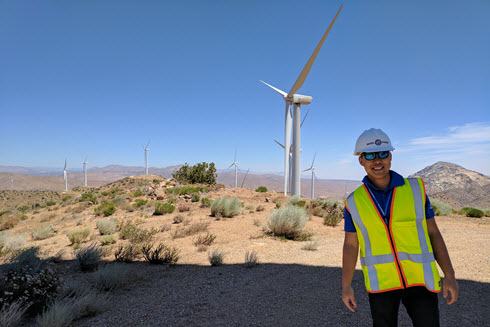It would be foolish to think that one person, or even one profession, could alone solve the challenges of climate change and sustainability.
Old thoughts die hard, though.
“There’s a perception that engineers work in their own space,” said Cris Liban, P.E., ENV SP, F.ASCE, executive officer of environment and sustainability for the Los Angeles County Metropolitan Transportation Authority. “That’s so not the case anymore.
“I’m not trying to work in my silo of excellence here. I’m trying to be collaborative with everyone else. In the broader sustainability space, that’s just how things work now in most jurisdictions across the planet.”
Certainly, collaboration and diversity are key tenets in ASCE’s approach to sustainability, and as chair of the Society’s Committee on Sustainability, Liban has applied these ideas to his work on the 2019 International Conference on Sustainable Infrastructure, coming to Los Angeles Nov. 7-9.
The idea is for civil engineers to take the lead, working with a wide range of nontraditional partners – not just from other engineering disciplines, but from other industries entirely, including finance and social science.
“We want to take the leadership role in getting everybody together at the table,” Liban said, “and then lead a proactive conversation on reducing climate-change impacts and increasing sustainable infrastructure.”
Liban saw those principles play out through his role with the Climate-Safe Infrastructure Working Group – tasked by California’s Department of Natural Resources to address the effects of climate change on the built environment in the state.
“We tried to convene the academics and practitioners together and reduce the gaps for implementing climate change strategies,” Liban said. “I was privileged enough to give a briefing to the state legislature, and that report’s recommendations focused on including as many voices as possible into that conversation.”
Along these same lines, ICSI 2019 will feature a program called Let’s Connect that brings together civil engineers, project owners, professionals from the insurance industry, people who work in finance, and on and on.
Diversity extends beyond professional practice, but also includes age. Liban’s conference team also has made a point of incorporating the ASCE groups local to Los Angeles, particularly the Younger Members, to assist with ideas and planning for ICSI.
“I cannot believe my ears with the things I’m hearing from our younger engineers,” Liban said. “The excitement they have, the innovative ideas that they bring to the table.”
One of those young engineers is Paul Lee, who is working on renewable energy projects for the Los Angeles Department of Water and Power. Lee, like many of his generation, doesn’t have to adjust his practice or engineering philosophies to account for climate change. It’s all he’s ever known. The climate-change stakes were already high when he entered the profession, and he embraces the challenge, knowing full well that the notion of the civil engineer working in a silo is not an option.
“I don’t think there’s one solution. I think if they’d all figured it out, we’d already be doing it,” Lee laughed.
“I think it’s really about having all the stakeholders come together to work together. What helps us find a solution is making sure there’s constant dialogue between the engineers, community groups, and all the different fields that intertwine.”
Learn more about ASCE’s International Conference on Sustainable Infrastructure at the official website.


